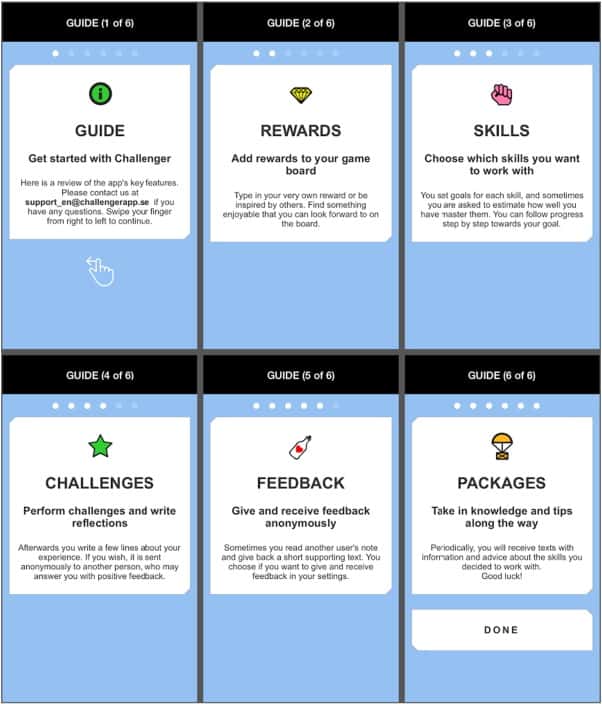This week we published a new paper in the journal Internet Interventions. In the paper we describe the Challenger smartphone application (for treatment of social anxiety disorder).
Do you experience persistent fear and anxiety during interpersonal encounters and a disabling fear of social performance? Than you might be one of the nearly 10% of people every year who suffer from social anxiety disorder (previously know as social phobia). Classically, treatment for SAD meant visiting your local psychologist once-per week for months or even years to discuss your fears, or more recently doing computer based cognitive-behavioral therapy (CBT) at home. However, recent research has shown exposure to social situations may be all that is required to get better. Plus, the “therapy” can even be fun.
The Challenger App for social anxiety disorder is a gamified platform for engaging in the task of exposure therapy. Rather, than being a boring set of checklists and worksheets, Challenger is designed to be entertaining, social and customized to your particular fears and worries. The gameboard is the centerpiece of Challenger App and users move forward toward their goals by completing increasingly difficult exposure challenges alongside supportive psychoeducation lessons.
The Challenger App is highly customizable. Exposures are unique to the individual’s own problem areas, from fear of getting on a bus to challenges with a particular person in their life. Once goal areas are set, exposures are presented according to the individual’s real-time location. An individual with challenges at the office will be presented a challenge while you’re actually there. Nearby business locations and their telephone numbers, used for other exposures challenges, will be displayed on your smartphone lock-screen while you’re walking through the city.
In order to reinforce the benefits of a completed exposure, the Challenger App encourages individuals to note their experience, and connects them with an anonymous network of other users to provide supportive feedback and ideas when they’re stuck. Unlike traditional CBT homework that can be boring and might be forgotten, the social aspects of Challenger may encourage participation, plus there is always a reminder on the smartphone lock-screen when you’ve been away from the App for too long.
Social anxiety disorder is a common disorder with a serious impact on the quality of life of the individual and the economic development of communities. The Challenger App leverages the unique qualities of the smartphone such as personal anonymity, portability and always on data collection of its numerous sensors while making use of Swedish institution-level security to ensure data is kept safe. Research opportunities abound for apps making use of smartphone sensor data and an individual’s generic digital footprint (such as “likes”).
Whether you’re using The Challenger App by yourself or in conjunction with the help of a therapist, the future looks to be more engaging for the user working to get over their social anxiety.
Read the full paper here:
Miloff, A., Marklund, A., & Carlbring, P. (2015). The Challenger app for social anxiety disorder: New advances in mobile psychological treatment. Internet Interventions, 2(4), 382-391. doi:10.1016/j.invent.2015.08.001
